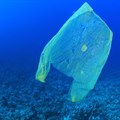TCC plans to ban single-use plastics from all operations
With its multi-year plastics elimination strategy, the group is committed to ensuring the environment remains vibrant for generations to come.

The single-use plastic ban at TTC offices is the first step in the group’s journey to the complete elimination of single-use plastics across all operations, which will also include the phasing out of single-use plastics across its Uniworld Boutique River Cruises and U by Uniworld cruise ships, all Red Carnation Hotels, and all travel experiences. With 1.9 million travellers annually across the group, it is estimated that TTC’s effort has the potential to help eliminate the use of millions of plastic water bottles annually.
The group began working towards the elimination of avoidable plastic waste when its Toronto, Canada office took the first important step of banning single-use plastics more than a year ago, replacing the items with viable alternatives. That action was soon followed by Red Carnation and Uniworld, who soon eliminated the purchase of all plastic straws and related single-use plastic items from their 17 properties and 20 ships.
"We are absolutely committed to doing our part to eliminate avoidable plastic waste and making a positive impact in the communities that we live in and visit," says Brett Tollman, chief executive, TTC and Co-Founder of The TreadRight Foundation.
"As a group with offices in more than 15 countries and operating in 70 countries around the world, we recognise the need to do our part to ensure that we do not further contribute to this planetary crisis. We are also encouraging our more than 10,000 team members to join us in this fight by reducing the use and consumption of products contained or served in plastic in their daily lives as well. We hope this sets a meaningful example to other businesses to join the movement in working to stop the scourge of plastics on a global scale."
Plastic – a clear and present danger
It is estimated that an additional eight million tonnes of plastic pour into our oceans every year, this in addition to the more than five trillion pieces of plastic estimated to be littering the oceans at this moment. The larger pieces of plastic injure, impair, and kill wildlife, while the disintegration of plastic debris and the manufacturing of microbeads are wholly poisoning marine ecosystems. According to a report by the World Economic Forum, if nothing is done to push back against the deluge of plastics currently overwhelming our oceans there could be more plastic in the oceans than fish by 2050.
"Plastics are a clear and present danger to the future of our planet. TTC’s commitment to the elimination of single-use plastics across the group inspires hope in the face of a massive adversary and signals to the industry the important role travel and tourism organizations must play in combatting the problem of plastics," says Céline Cousteau, TreadRight Ambassador.
The new plastics elimination initiative furthers TTC’s continuing sustainability journey, this includes the founding and supporting of The TreadRight Foundation, led by sustainability luminaries including Costas Christ and Céline Cousteau, and its 50-plus sustainability projects around the world.
The group’s commitment to measure and monitor their environmental impact began with the development and adoption of a Corporate Social Responsibility strategy in 2013. Since then, TTC employees have logged more than 20,000 volunteer hours including beach clean-ups of plastic waste. It has also invested heavily and introduced an e-document system to replace paper and other plastic packages for its guests while committing to plant a tree for each guest that opts for e-documents. This is aside from additional initiatives that include the improvement of its offices’ environmental commitment using smart technology including geothermal energy systems, and smart cooling for data centres and numerous other efforts.










